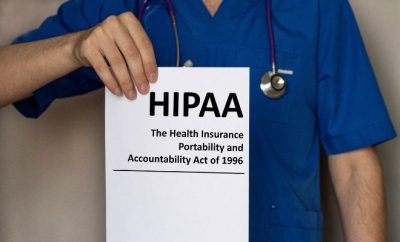
News
New Global Plan Aims to Ban Harmful Trans Fats by 2023
The World Health Organization (WHO) has announced their campaign to institute a global ban of trans fat in foods around the world by the year 2023. This marks the first time global health officials have called for an ingredient to be completely eradicated from the world’s food supply.

World Health Organization
Trans fat, or trans fatty acids, are made when vegetable oil hardens in a process called hydrogenation. These fats are used in snack foods, fried foods, baked goods, and in products that contain vegetable shortening, coffee creamer, margarine, and ready-to-use frosting. Trans fats are used in foods like these as they don’t spoil as quickly when compared to other fats, but they have been shown to cause seriously harm to our overall health.
Studies have shown that trans fats can raise your bad (LDL) cholesterol levels and lower your good (HDL) cholesterol levels. In addition, a diet high in trans fat greatly increases your risk of developing heart disease and stroke, along with a higher risk of type 2 diabetes. In fact, nutritionists recommend that trans fat should make up just 1 percent of your overall diet, while others say that it shouldn’t be present in your diet at all.
The WHO estimates that trans fat leads to the deaths of more than 500,000 people from heart disease each year. “It’s a crisis level, and it’s major front in our fight now,” WHO Director-General Tedros Adhanom Ghebreyesus said at a news conference in Geneva.
Dr. Francesco Branca, director of the WHO’s Department of Nutrition for Health and Development says “Trans fat are a harmful compound that can be removed easily without major cost and without any impact on the quality of the foods.” Branda is pushing for middle and lower-income countries to pick up the fight in eliminating trans fats.
Trans fatty food first hit the U.S. in 1911, when Crisco released their shortening to public. It’s usage increased in the 1950’s, when people began to believe that trans fats were a healthier alternative to butter and lard. However, once nutritional research caught up, trans fat became the pariah of a healthy diet. In 2006, New York City banned restaurants from serving food cooked with trans fats, at the same the FDA began requiring manufacturers to list trans fat content on food labels. By the end of the decade, trans fat levels in the blood of middle aged adults had fallen by nearly 60 percent.
Now, the WHO, along with the FDA, are attempting to put the nail in the coffin for trans fats. Lynn James, a registered dietitian and educator at Pennsylvania State University, told CNN this will take “legislation to make a big change like that in terms of overall population health, along with policy and nutrition education.” She continues, “Hopefully, we’re going to be a leader again towards eating more whole food, such as the healthful Mediterranean diet.”
The WHO has no enforcement capacity, so for this proposal to be successful, they will have to rely on the governments of the world to implement strategies that will enforce this ban. While it’s very likely we will see many countries not take an active role in this plan, there’s a high chance we are in the last few years of trans fats being found in the American diet.





0 comments